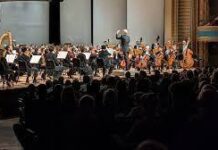Last February, Sissoko’s historic instrument was disassembled on a flight home to Paris. Bolstered by a new kora, his latest album revives their borderless journey
Last February, Sissoko returned to Paris after a US tour with his trio 3MA to find that border officials in New York had dismantled his kora. The neck, bridge, strings and custom-built pickup had been removed from the body, made of calabash and parchment. The instrument was beyond repair, and made headlines around the world.
The Transportation Security Administration denied opening the flight case, but an official advisory notice stuck inside suggested otherwise. One year on, the loss still hurts. “It’s never easy to see your instrument broken,” says Sissoko. “And the way we were separated, I never wished it would go like that.” Not to mention the doubt cast on his story by the TSA and Facebook commenters. “People thinking I had broken my instrument on purpose, that was shocking to hear. I’m not a salesperson or a luthier. It takes the most amount of effort to get to know the instrument.”
Djourou comes with a new kora for Sissoko (from French luthier and long-term collaborator Kaelig) and a healing of sorts. People from all over the world contributed to the GoFundMe set up by his producer to replace the instrument. “Kora music moves my soul to a higher place,” said one donor: “your music has lifted me through grief.” “Ballaké is a world treasure,” said another. Sissoko was deeply moved.
The kora has a mesmerising quality. Toumani Diabaté, Sissoko’s erstwhile collaborator and arguably the world’s most famous kora master, has won Grammys for his dazzling skill. Sissoko can match Diabate’s virtuosity when he needs to, but for many listeners, he brings an unsurpassed emotion and rootedness in the ancient sound. He chooses his koras for their softness of sound and grounds every recording with steady bass, a light touch and only those notes that matter.













